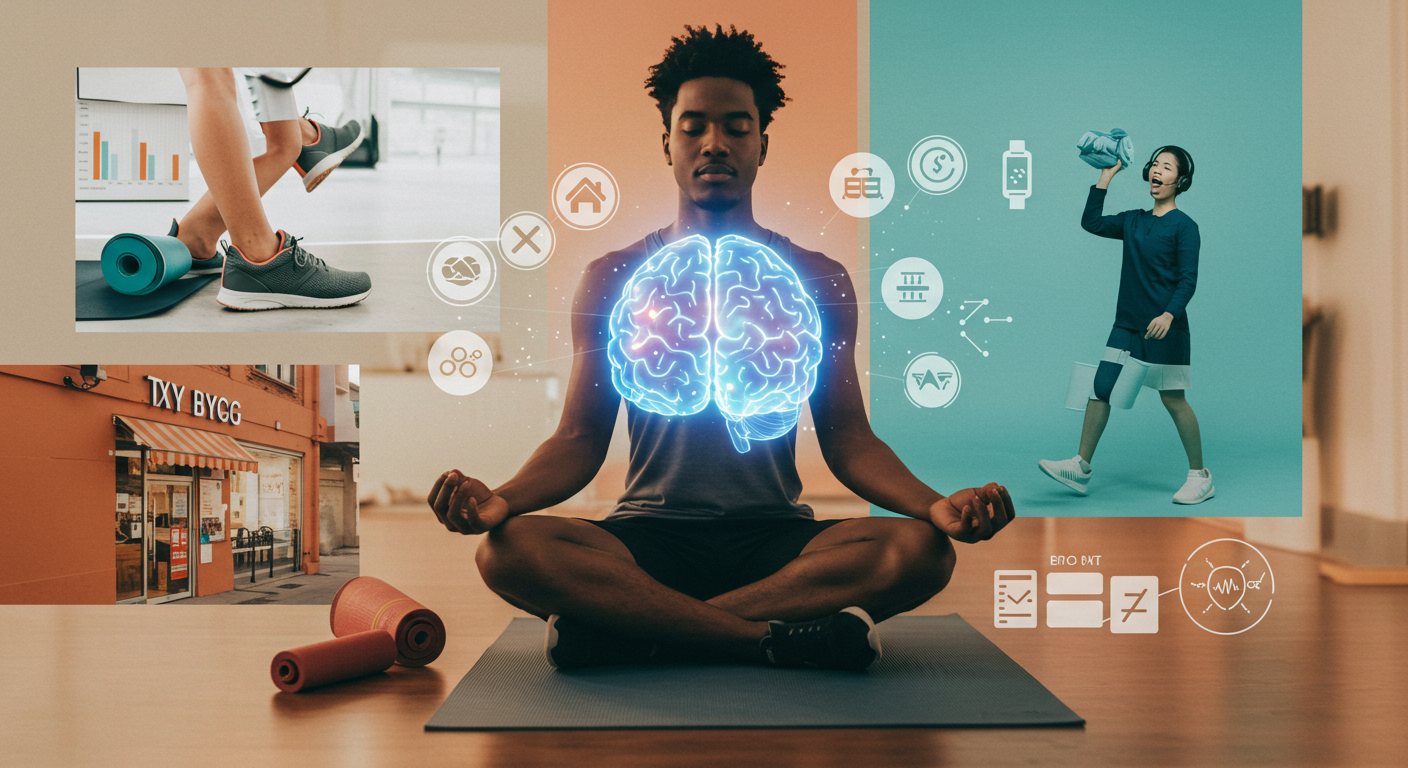Blog

What Mental Health Can Learn from Fitness, Tech, and Retail
Mental health affects every aspect of a person’s life and well-being, but despite increased awareness, mental health services often remain underutilized, fragmented, and difficult to access. Once upon a time, mental health was relegated to clinics and stigmatized conversations, but today it’s a focal point of public health efforts, digital innovation, and social discourse. Industries such as fitness, retail, and technology have made significant advancements where mental health falls short, meaning there are many important lessons to learn. This article focuses on the most valuable lessons that mental health can learn from the fitness, tech, and retail sectors.
Table of Contents
What Mental Health Can Learn from Fitness, Tech, and Retail
Lessons from fitness
The fitness industry has mastered habit formation. Regardless of the fitness goals, training, and workouts, the key to success is to make it your habit. A lesson that mental health can learn from fitness is building habits through engagement.
Lesson #1: Behavioral motivation
Fitness platforms thrive on psychological principles such as habit tracking, goal setting, rewards, and community accountability. Access to tools such as progress trackers, streaks, and badges gives users milestones they can celebrate. Achieving one milestone motivates a person to keep going to achieve the next one. Motivation and behavior change go hand in hand here.
Mental health could adopt similar strategies. For instance, integrating mood tracking with achievement markers could help users visualize emotional progress. Evidence confirms that mood-tracking apps facilitate self-awareness and help users look back on a previous emotion or mood to understand what was happening.
Encouraging regular therapy check-ins the way fitness platforms present daily workouts could help normalize ongoing mental care instead of using it only during crises.
Lesson #2: Importance of community and support
Community plays an important role in the fitness industry whether it’s in the form of group workout sessions or online communities that provide peer support. It is community or peer support that makes wellness feel like a shared journey. The same applies to mental health; group therapy or community forums can foster connection, particularly for those dealing with depression, anxiety, and social isolation. Research indicates that a sense of community is associated with reduced symptoms of depression, anxiety, and stress.
Lesson #3: Accessibility is important
The fitness industry relies greatly on easy access to information, services, and workouts. Accessibility makes it easier for people to integrate their fitness journey into their schedule. Mental health services should do the same. For a long time, they have been limited to office hours and long waitlists, but moving toward improved accessibility and flexibility can improve the quality of care. Studies reveal that increased accessibility of mental health services is associated with improved efficiency at the same time. The rise of telehealth and online counseling platforms makes access to mental health services easier and allows people to get the help they need quickly, in a way they can fit it into their schedule and access wherever they are at the moment.
Lessons from tech
The tech industry is superior to others in terms of building personalized, scalable solutions. Here are the lessons that mental health can learn from tech and its trends.
Lesson #1: Data-driven personalization
Digital mental health platforms can use data to deliver tailored interventions. For instance, AI chatbots can identify patterns in user input to suggest coping strategies, schedule reminders, and make changes in care if and when necessary. More precisely, mental health tools can learn from user behavior to refine their support. Personalization and tailored recommendations make care feel relevant and respectful because the user feels “seen” or “heard”. Evidence shows that personalization elements of therapeutic content and interfaces were favored among participants, but not thoroughly addressed. The same paper explained that incorporating generative AI while adhering to standard clinical research can further personalize user experiences.
Lesson #2: Scalability, but make it personal
Tech companies have demonstrated that scalable systems can still feel personal. Mental health services need models that allow more people to receive care without leading to burnout among mental health professionals. One way to make it happen is through hybrid models where chatbots or self-guided modules handle low-risk interactions while clinicians have time to dedicate to more complex cases.
Lesson #3: UX design
User experience (UX) design is the heart and soul of tech advancements. Whether it’s a new app, platform, website, or gadget, it should be easy to use and understand. Mental health services need to prioritize UX design too because many apps are cluttered, confusing, and too clinical. That’s why it’s important to use clear language and friendly interfaces.
Lessons from retail
The retail sector has mastered the art of understanding and improving customer journeys. Here are the most important lessons that mental health can learn from retail.
Lesson #1: Seamless experience
Retailers focus on eliminating obstacles. They want customers to have a seamless, stress-free experience due to solutions such as one-click purchases or real-time inventory updates. The goal is to remove any obstacle that interrupts consumer behavior. Mental health needs to do the same thing – remove roadblocks that prevent people from accessing care. These may include long waitlists, high costs, insurance troubles, and confusing pathways to help. In the same way that retail customers abandon their carts when the process is too complex or confusing, people drop out of care systems when they feel frustrated.
Lesson #2: Convenience and location
Long gone are the days when “if you build it, they will come” was true. Nowadays, the world is focused on accessibility and convenience, which is why it’s crucial to bring your facilities closer to potential and current patients. In retail, the location of the store is everything and plays a key role in its success. Mental health isn’t that far off. When it comes to making a decision about where to locate a clinic, private practice, or office, it is necessary to understand geographical and spatial components too. Consider who your patients are or where they work in order to decide where to provide mental health services.
Lesson #3: Branding is king
In retail, people don’t just buy products, they buy stories. Successful brands offer high-quality products in addition to emotional connection and clear values. Mental health care can benefit from a clear brand voice that feels empathetic and trustworthy. It is crucial to work on making your services recognizable thanks to warm and relatability you provide.
Conclusion
Mental health can learn a lot from fitness, tech, and retail. These lessons can significantly improve the quality of mental health services and their access to them. The key is flexibility, accessibility, and empathy without sacrificing quality of care.
References
https://pmc.ncbi.nlm.nih.gov/articles/PMC8387890/https://pmc.ncbi.nlm.nih.gov/articles/PMC10314672/https://pmc.ncbi.nlm.nih.gov/articles/PMC8381091/https://pubmed.ncbi.nlm.nih.gov/40444184/

Transformative Healthcare Solutions
Changing Lives, Shaping Futures
Toll Free: (888) 743-0244
Local: (954) 858-5511
Fax: (954) 858-5510
Quick Links
Resources
Connect With Us
© 2025 Transformative Healthcare Solutions All Rights Reserved
